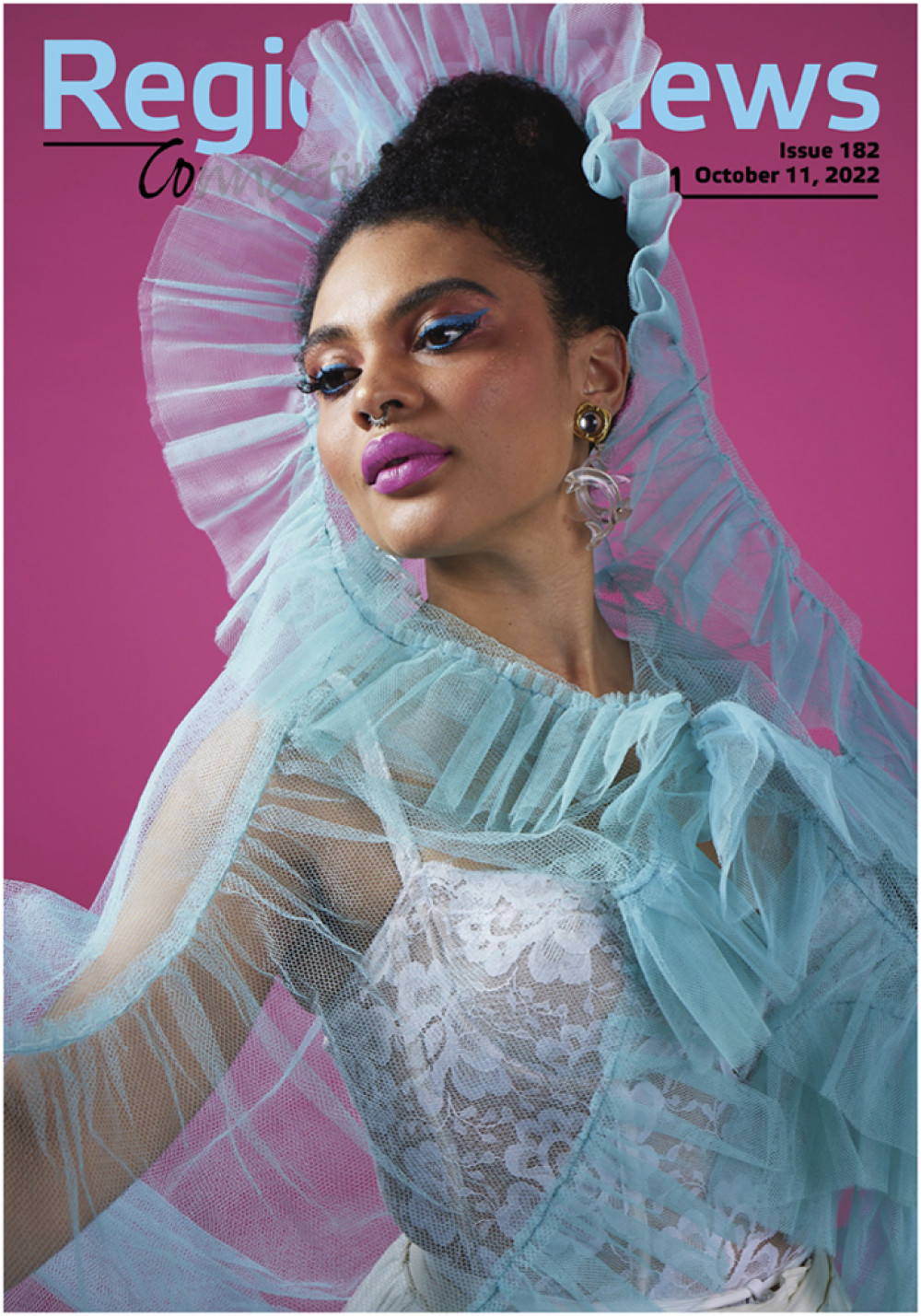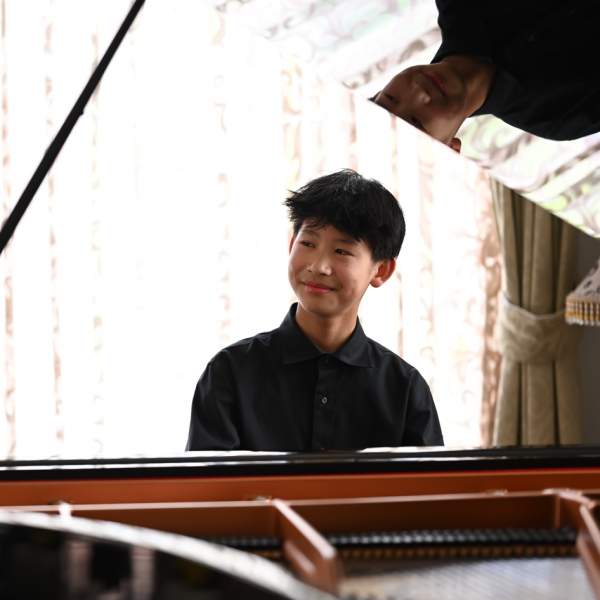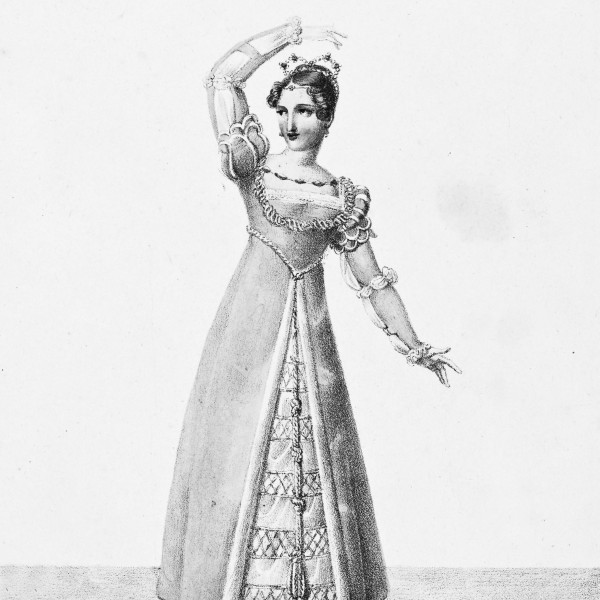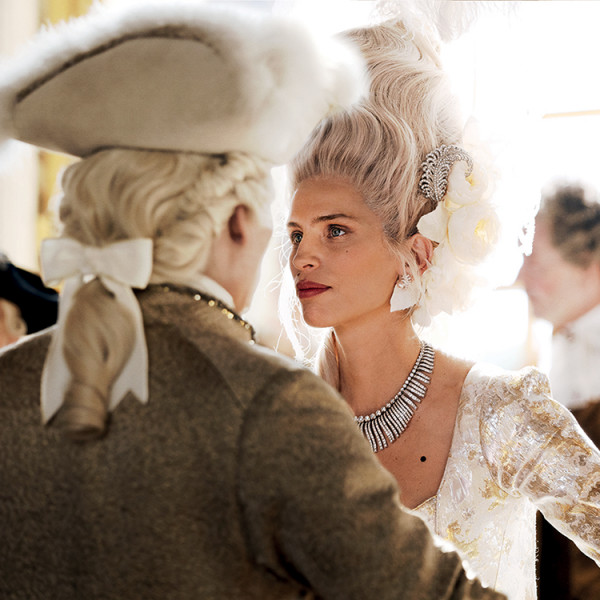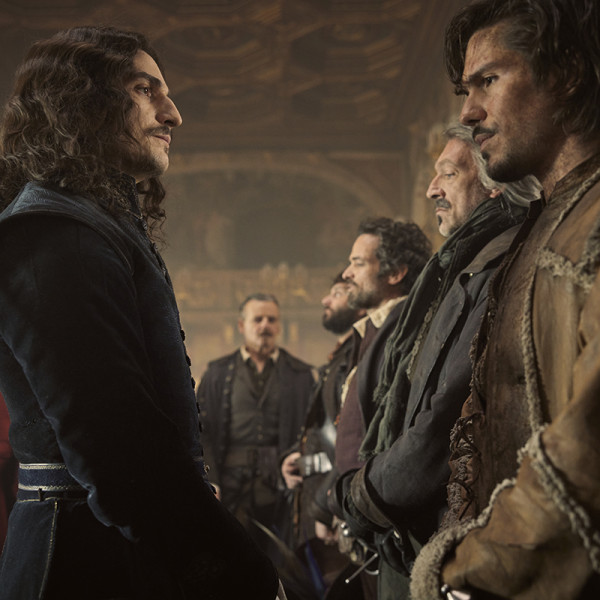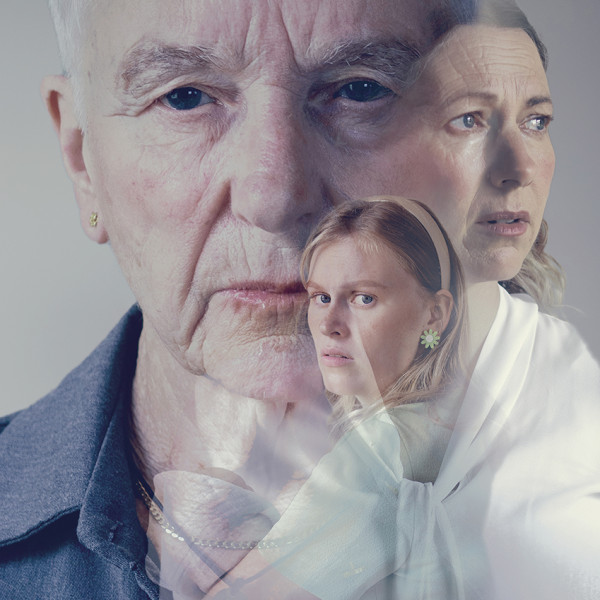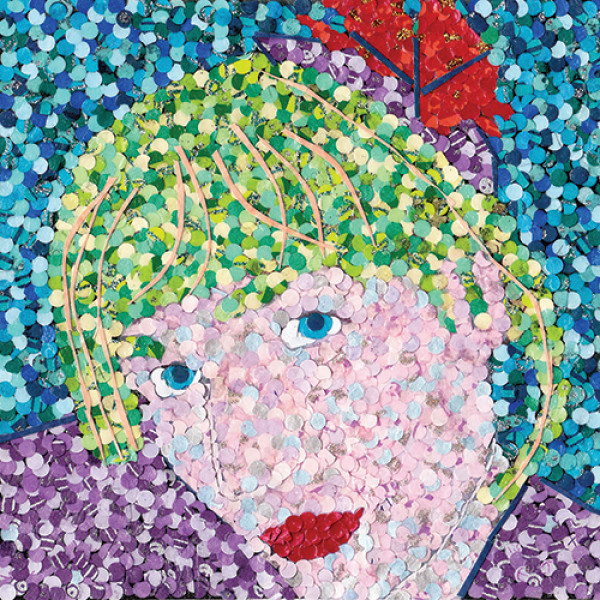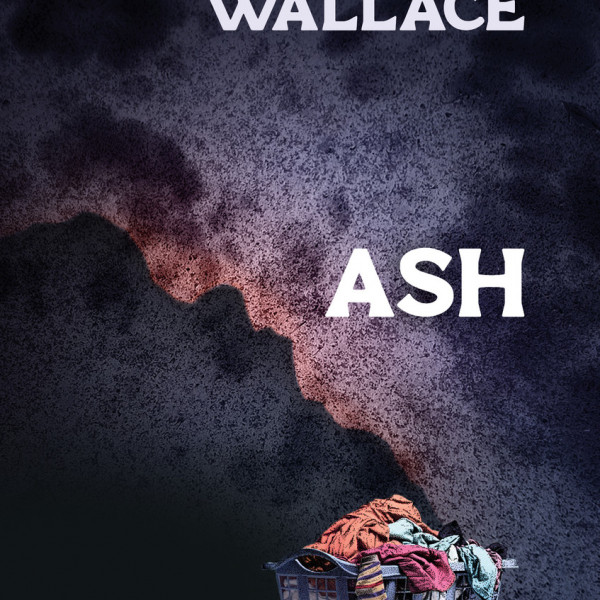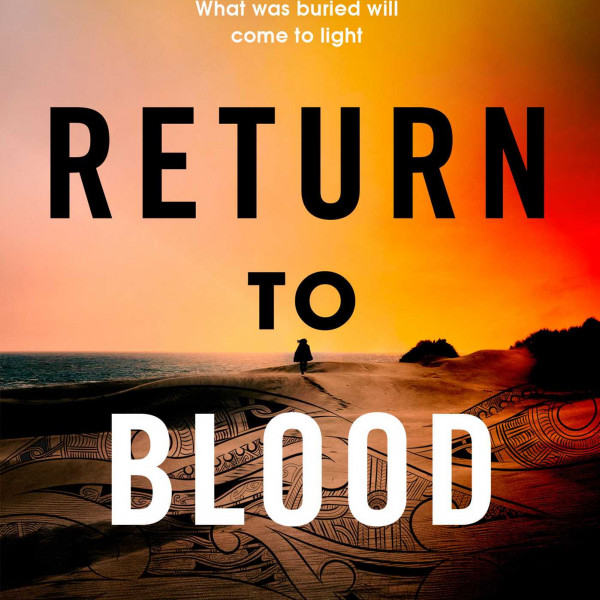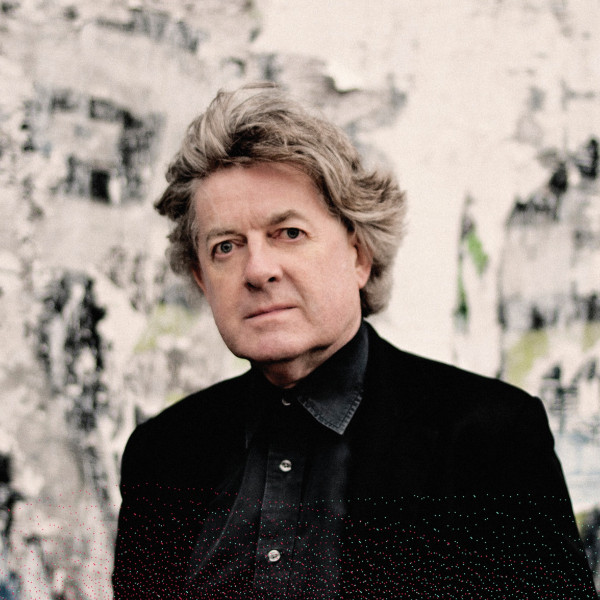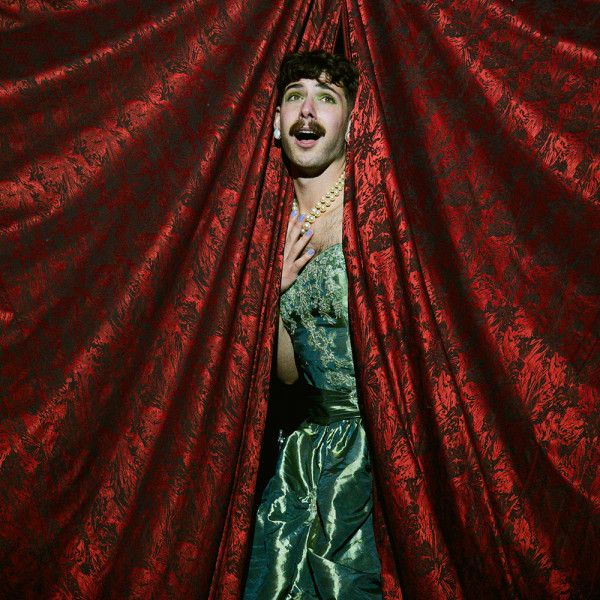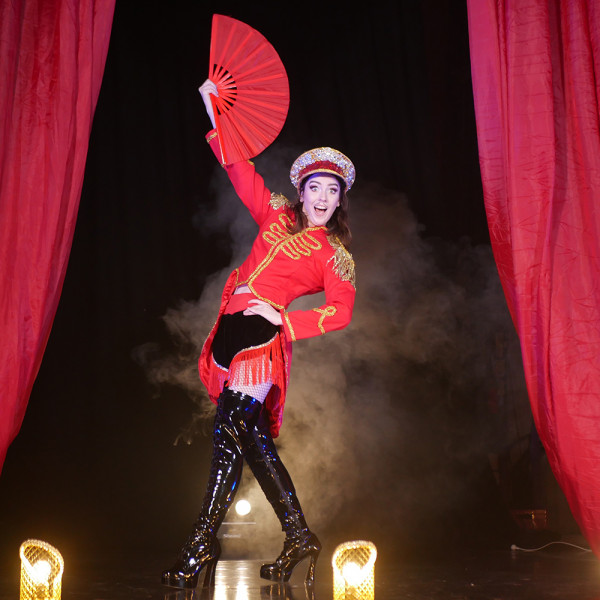
Revel
Presented by: Inverted Citizens
Directed by: Jackson Cordery
Hannah Playhouse, 13th Jul 2024
Reviewed by: Madelaine Empson
In the words of the great Antonio Bam-bino Go-Figaro Caravan, the world outside is cold, dark, and complicated. But inside, it’s hot. Oh, so hot!
Revel is a brand-new variety cabaret and cocktail experience by Wellington contemporary circus company Inverted Citizens. Featuring pre-show entertainment served up with cocktails by The Tasting Room, it marries drag and dance with clowning and chaos, harmonies and hoop with music, madness, and merriment to spectacular, sparkly effect.
Performers each deliver an act per half, with introductions and interludes by MC Antonio Bam-bino Go-Figaro Caravan (Nino Raphael) and his trusty assistant, Booth. Some transitions are so charming, silly, and fun that they become highlights in and of themselves, particularly when other performers get involved (here’s looking at you Selina Simone, segueing and sashaying away). In addition to the sheer talent on display, the flow of this cabaret, punctuated by electric interactions between acts, sets it apart from other variety shows I’ve seen in the past.
And now, onto the acts! Drag queen Selina Simone slays with a luminous (in more ways than one) rendition of Thunderstruck from AC/DC, while Laura Oakley as Lulu L’amour on hula hoop (sorry, ‘oola ‘oop) makes our heads spin. I’m still struggling to comprehend how one person can get so many hula hoops to orbit their body with such grace, showmanship, and apparent effortlessness.
Jade Merematira as vocalist Seraphina Night handles mic issues like a pro and delivers some truly stunning renditions of popular songs, with her performance of …Baby One More Time putting me in mind of Postmodern Jukebox. Her live accompaniment of Kiera Fitzgerald as Kiera Narise on aerial hoop (Rolling in the Deep) and chair (If I Ain’t Got You, with Raphael on guitar) adds a shimmer of je ne sais quoi. Fitzgerald’s gravity-defying acts are jaw-dropping. And we cannot forget Booth’s sultry ode to the microphone, I Want to Know What Love Is.
When I close my eyes and think of Revel, I see rouge, sequins, smiles. I hear laughter, lively chatter, upbeat swing. And I feel joy, warmth… nay, hot! Oh, so hot! Here’s hoping this becomes a permanent fixture on Wellington’s events calendar.



